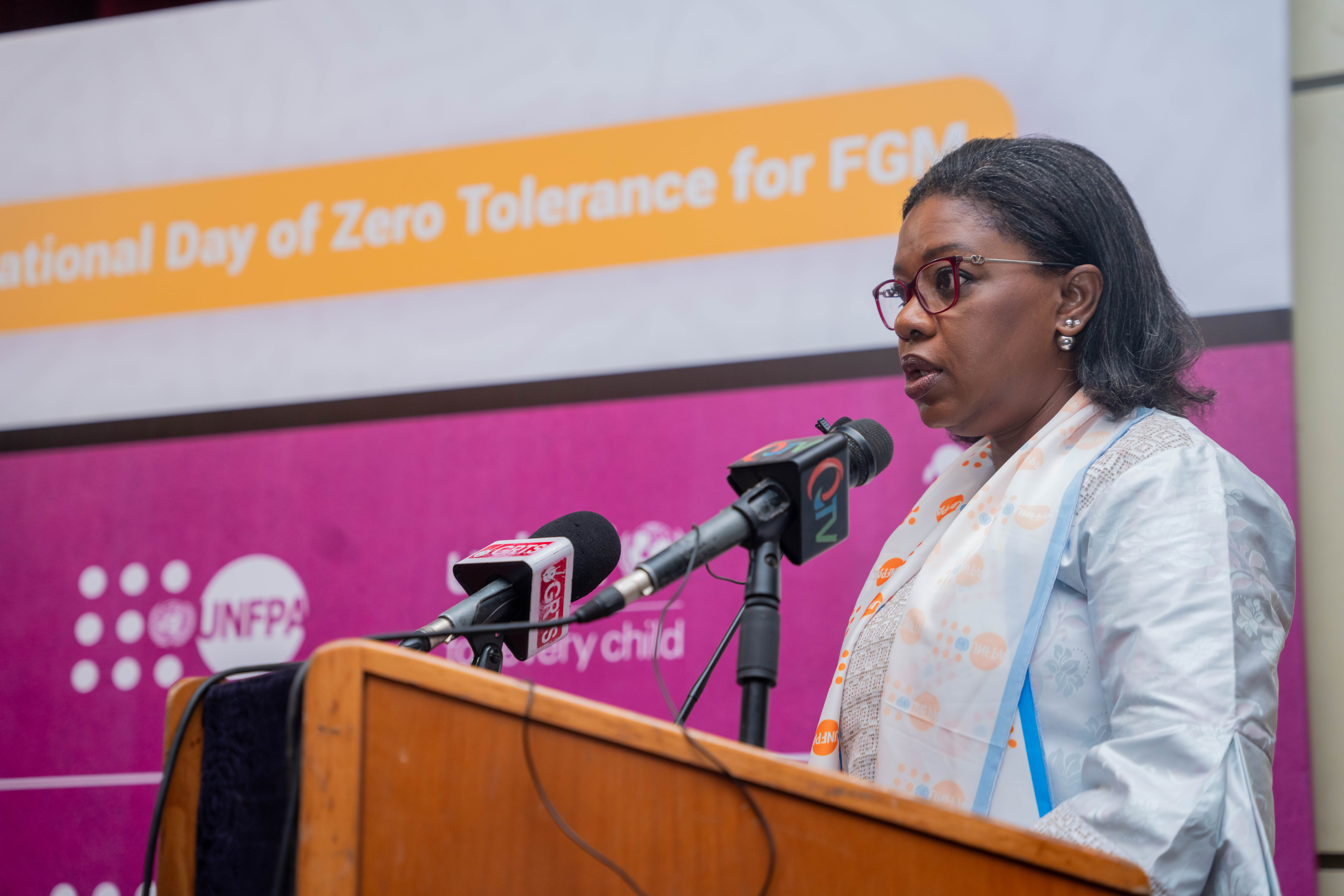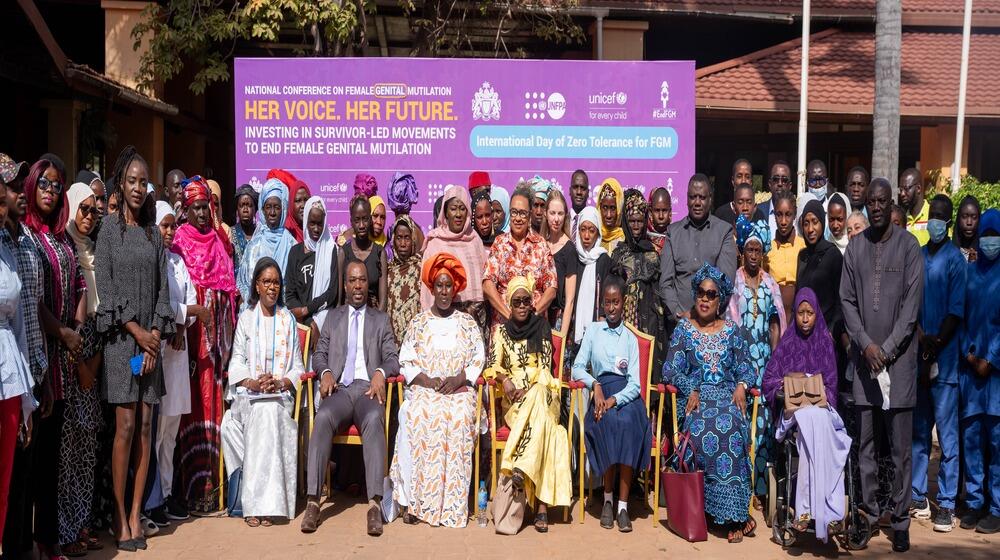Held in Banjul on February 6-7th, 2024, the UNFPA-UNICEF Joint Programme on the Elimination of Female Genital Mutilation reiterated its unwavering support for survivors. Resources are channeled into survivor-led initiatives, ensuring access to education and vital services, and empowering them to combat this harmful practice. Aligned with its mission, UNFPA and UNICEF The Gambia collaborated with the Ministry of Gender, Children, and Social Welfare and partners to organize this pivotal conference. It served as a vital forum for dialogue aimed at formulating a comprehensive strategy to combat FGM in The Gambia.
Ndeye Rose Sarr, the UNFPA Resident Representative in The Gambia, emphasized the gravity of FGM as a human rights violation. Despite some progress, the decline in prevalence rates is not rapid enough, particularly in the face of challenges such as food insecurity and climate change. Ms. Sarr expressed optimism in the conference's potential to drive targeted and sustained efforts in the global campaign against FGM.

The Deputy Representative of UNICEF The Gambia, Mr. Armand Gnahore, stressed the need to intensify efforts to eradicate this harmful practice, citing its severe health risks. He emphasized that ending FGM means empowering women and girls to be healthy, stay in school, make choices, and contribute to the economy, all critical in achieving gender equality.
Numerous speakers, including the Deputy Director at the Ministry of Gender, Neneh Touray, emphasized the urgent need to intensify efforts and collaboration to end this harmful traditional practice. The conference offered a platform for discussions on various critical aspects of FGM in The Gambia, including its reality, research and evidence, its intersection with Islam, human rights enforcement, safety, and protection of women and girls' rights, and the building of survivor-led movements to address FGM in The Gambia.
Communique
The conference's communique emphasized that FGM violates fundamental human rights, perpetuates gender inequality, and causes immense physical and psychological harm. It called for collective action to end FGM, outlining commitments such as enforcing laws prohibiting FGM, raising awareness, providing healthcare and support services for survivors, engaging communities, and enhancing cooperation and coordination efforts.
The pledge reiterated the unwavering commitment to end FGM, urging all stakeholders to join in this critical endeavor to create a world where every girl and woman is free from the threat of FGM and able to realize their full potential.
Media Contact: Fatoumatta Cham (fcham@unfpa.org)


